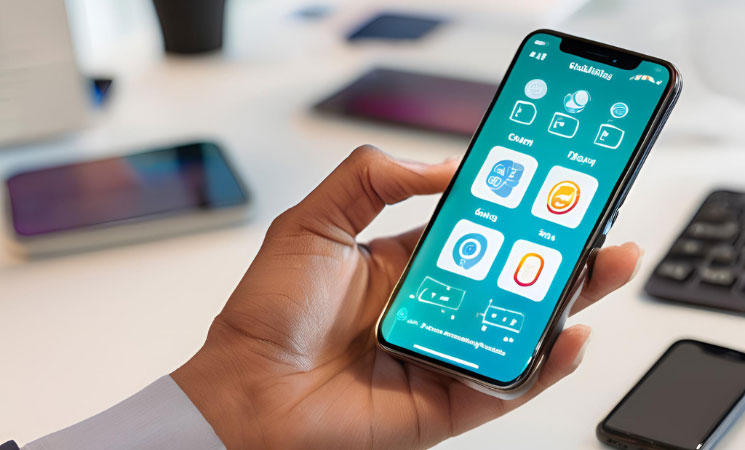Selenium has made a name for itself as the top web application testing framework. It wasn’t intended for mobile application testing, though, which creates a whole set of difficulties. Notwithstanding this constraint, Selenium-oriented frameworks such as Appium and Selendroid have surfaced to mitigate the issue, permitting efficient Selenium mobile testing in a fashion akin to conventional Selenium testing.
This article analyzes how these frameworks expand Selenium’s ability to include mobile testing and dig into their functionality.
Is Selenium a Good Fit for Automating Testing of Mobile Applications?
Selenium’s effectiveness in automating web application testing is widely recognised. However, because mobile testing was not incorporated into its original design, it fails when it comes to testing mobile apps. It is not possible to develop automated test scripts for mobile applications directly using Selenium. Frameworks that are compatible with Selenium, including Appium and Selendroid, have been created to get around this restriction. These frameworks provide the necessary tools and functionalities to automate mobile application testing effectively.
Leveraging Appium and Selendroid for Mobile Application Testing
When utilizing Appium and Selendroid for mobile application testing, the process typically involves several key steps:
Test Script Development
Writing code in programming languages like Java, Python, or Ruby is necessary to create automated test scripts for mobile applications. Writing test scripts for Appium or Selendroid is very simple for individuals who are already familiar with Selenium, as these frameworks have comparable syntax and topologies. However, writing these scripts by hand can take a lot of time, and because early development work is needed, the ROI may not be realized right away.
Test Management
While Appium and Selendroid are powerful open-source tools, they lack robust built-in test management features. Selendroid offers basic functionalities such as preserving locators and commands and recording element clicks. Similarly, Appium provides a recorder for iOS apps, but the captured output mainly consists of test locators and commands, without complete test scripts.
Backward Compatibility
Appium supports Android devices running version 4.0 and higher. To ensure backward compatibility with older versions of Android (API 10–17), Appium integrates with Selendroid. However, for comprehensive backward compatibility, particularly with lower API versions, using the original Selendroid framework directly may yield better results. Selendroid remains a superior choice for projects requiring full backward compatibility.
Gesture Testing
Gestures play a crucial role in mobile applications, and both Appium and Selendroid effectively handle gesture recognition through dedicated APIs. Selendroid, in particular, excels in this area with its ‘Advanced User Interactions API,’ which is beneficial for testing complex gestures.
Selendroid: A Comprehensive Synopsis
Key Features of Selendroid:
- Hotplugging: Selendroid can dynamically detect and identify new devices plugged into it, enabling the addition and removal of devices during a test.
- Built-in Inspector: Selendroid includes an inspector for examining UI elements, facilitating easier test script creation.
- Advanced Gesture Testing: Selendroid supports sophisticated gesture testing through the “Advanced User Interactions API.”
Advantages of Selendroid:
- Android-Focused: Optimized exclusively for Android applications, making it an ideal choice for Android-centric projects.
- No App Modification Required: Tests can be automated without needing access to the application’s source code, enabling black-box testing.
- Multi-Browser Interaction: Selendroid supports multiple browser instances on an Android device, offering comprehensive automation for web-based Android apps.
- Faster Test Execution: By leveraging Android instrumentation, Selendroid ensures quicker test cycles.
- Java Library Support: Provides a Java client library, allowing test scripts to be written in a widely-used programming language.
- Supports Hybrid Apps: Automates interactions within embedded web views, facilitating the testing of hybrid applications.
- Selendroid accelerates automated functional testing for native, hybrid, and web Android applications, offering robust test automation capabilities for development teams.
Selendroid Components:
- Web Driver Client: A Java client library used for writing test scripts.
- Selendroid Server: Runs on the mobile device (real or emulator) where the application under test is installed.
- Android Driver Webview App: A built-in driver for testing mobile web applications.
Appium: A Detailed Description
Like Selendroid, Appium makes use of the JSON Wire Protocol while expanding the capabilities of Selenium. Appium becomes a potent tool for mobile testing when combined with Selenium, guaranteeing top performance and user experience on a variety of hardware and operating systems.
Key Features of Appium:
- Cross-Platform Support: This feature boosts productivity by enabling test scripts to be created once and executed on several systems.
- Advanced Mobile Features: Offers APIs to access features like barcode scanning, GPS, and notifications on mobile devices.
- Active Open Source Community: Benefits from continuous updates and support from a large community of developers.
- Expressive Locator Strategies: Offers advanced techniques for identifying UI elements, improving test accuracy.
- Image-Based Testing: Enables validation of elements and screens through image comparisons.
- No App Modification Required: Appium does not require access to the application’s source code, eliminating the need for reinstallation after minor code changes.
- Large User Community: With an extensive and active user base, Appium provides ample support and resources.
Advanced Features in Selenium Mobile Testing
Advanced Selenium mobile tests offer a range of features that allow testers to manage diverse mobile-specific scenarios and simulate complex user interactions. When combined with Appium, these features can significantly enhance the effectiveness and efficiency of mobile testing efforts. Some of these advanced tools and techniques include:
Accessing Device Logs
Device logs are vital for debugging test sessions. Appium facilitates this by collecting system, crash, and application logs, enabling testers to identify and troubleshoot issues effectively.
Handling Notifications
Appium enables interaction with the notification shade on Android or the notification center on iOS, allowing testers to verify how the app responds to push notifications.
Network Conditioning
Integrating Appium with network simulation tools allows testers to emulate various network conditions. This capability is crucial for testing the app’s resilience under different network speeds and offline scenarios.
Automated Performance Testing
Appium can be used alongside performance testing tools to monitor memory and CPU usage during test sessions. This ensures the application maintains optimal performance under various conditions.
Cloud-Based Testing Platforms
Connecting to cloud-based platforms like LambdaTest provides access to a wide range of devices and operating systems for cross-platform testing. These platforms offer scalability and flexibility, allowing for more comprehensive testing.
Challenges and Solutions in Selenium Mobile Testing
The complexity and diversity of mobile devices and operating systems can provide a number of issues when using Selenium to test mobile applications, especially when using Appium. The list of common issues and their fixes is as follows:
Various OS and Device Versions
Problem: Various device types, screen sizes, and operating system versions can cause fragmentation of mobile ecosystems, which can result in inconsistent app behavior and test results.
Strategy:
- Device Farms: To access a range of devices and OS versions, make use of cloud-based device farms such as LambdaTest.
- Device Prioritization: Toguarantee widespread compatibility, concentrate on testing the most widely used devices and operating systems based on user and market statistics.
Flakiness in Test Execution
Challenge: Tests may fail intermittently due to timing issues, network variability, or environmental conditions, leading to flaky results.
Strategy:
- Enhance Test Robustness: Use explicit waits or polling techniques instead of hard waits to handle asynchronous operations and elements that take time to load.
- Isolate Tests: Ensure each test is independent to avoid side effects from previous tests, thereby reducing flakiness.
- Analyze Appium Logs: Utilize Appium logs to pinpoint the exact step where a test fails, facilitating quicker troubleshooting.
Handling Dynamic Content
Problem: Mobile apps often load content dynamically, which can cause elements to appear after the page has loaded, leading to “element not found” errors.
Strategy:
- Dynamic Wait: Implement WebDriverWait and ExpectedConditions from Selenium to wait until content becomes clickable or visible.
- Scrolling: Use scrolling actions to make elements visible on the screen before interacting with them, ensuring consistent test outcomes.
Mobile Gestures and Interactions
Challenge: Simulating complex gestures like swipe, pinch, or multi-finger taps can be challenging and may not always function as expected.
Strategy:
- TouchActions API: Use Appium’s TouchAction class to craft complex gestures that simulate real user interactions.
- Adjust Gesture Parameters: Modify parameters such as duration, pressure, and coordinates based on the device’s resolution and responsiveness to improve gesture accuracy.
Localization and Internationalization Testing
Challenge: It can be laborious and error-prone to test programs in several languages and formats.
Strategy:
- Automate Locale Switching: Develop scripts that automatically switch between locales and languages to streamline the testing process.
- Use Localized Test Data: Ensure that the test data reflects the locale settings to accurately simulate user interactions in different regions.
Enhancing Mobile Testing with LambdaTest
LambdaTest is an AI-driven testing platform that offers a cloud-based Selenium Grid for web testing and Appium Grid for mobile app testing that supports reliable manual, visual, and automated testing. With compatibility across multiple browsers and operating systems, LambdaTest enables simultaneous Selenium tests, accelerating test execution.
Key benefits of using LambdaTest include:
- Geolocation and Accessibility Testing: Perform tests that consider geolocation and accessibility requirements, ensuring compliance and usability.
- Integration with Developer Tools: Seamlessly integrate native developer tools to enhance the testing workflow.
- CI/CD Integration: Expedite resolutions within DevOps and CI/CD pipelines by integrating with tools like JIRA, GitHub, and Slack.
- Low-Code Automation: LambdaTest allows testers to create automated tests using plain English, reducing the need for extensive coding expertise.
- AI-Powered Insights: The platform leverages AI algorithms to enhance testing efforts and provide intelligent insights.
- Cloud-Based Flexibility: LambdaTest’s cloud support enables testers to execute mobile test cases without the need for extensive setup, offering access to a vast range of environments.
Conclusion
This article has highlighted advanced features such as gesture recognition and device orientation handling, which are essential for creating more effective and comprehensive mobile tests.
Optimizing tests for specific platforms and conditions ensures a consistent user experience across different devices. Incorporating these tests into continuous integration pipelines underscores the importance of automation in achieving faster and more reliable results.
Mobile site testers can leverage sophisticated tools and techniques such as accessing device logs for debugging, handling push notifications, and utilizing network conditioning to simulate various network conditions.
Each enhancement to your testing framework not only improves your application’s performance but also deepens your understanding of the mobile landscape. By starting with small, incremental improvements, you can build more robust and effective mobile testing processes, ultimately delivering higher-quality applications.
Appium and Selendroid each offer distinct advantages for mobile application testing, catering to specific project requirements. Appium is particularly well-suited for functional, regression, compatibility, and integration testing across both Android and iOS platforms, while Selendroid excels in providing backward compatibility for older Android versions. Leveraging these tools effectively can significantly elevate the quality and reliability of your mobile applications.













